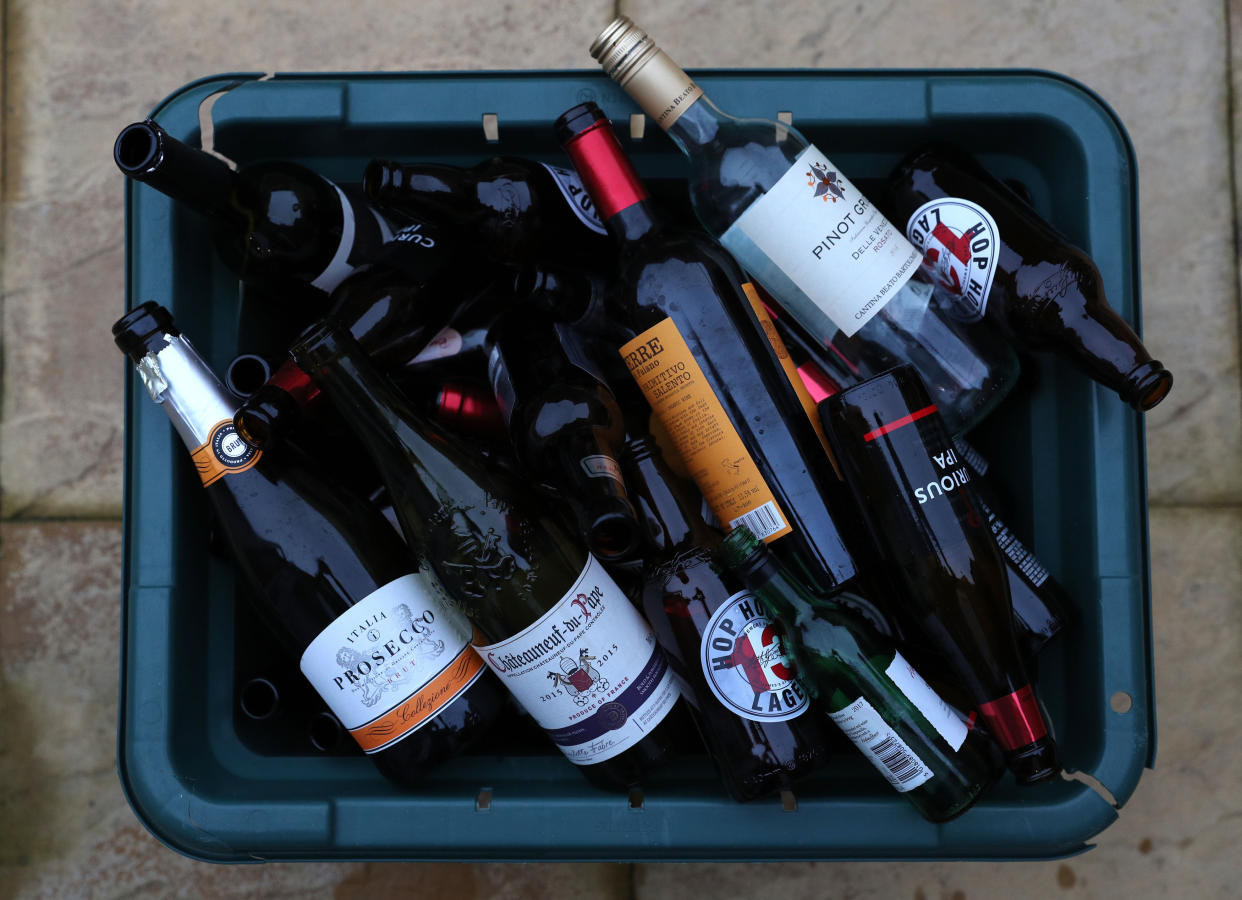Humza Yousaf accuses UK Government of trying to ‘scupper’ deposit return scheme
Scotland’s First Minister has accused the UK Government of trying to “scupper” the deposit return scheme, as the war of words between Westminster and Holyrood about the environmental initiative intensifies.
Lorna Slater, the Scottish Government minister responsible for implementing the scheme, told the UK Government on Saturday the move to allow it only if glass bottles were removed from its remit will “present a severe challenge to the viability” of the scheme north of the border.
And First Minister Humza Yousaf said the UK Government was “not just trying to scupper the deposit return scheme (DRS), which is clearly what they are trying to do, they’re trying to undermine devolution time and time again”.
Mr Yousaf told the BBC on Saturday: “Not only is it bad in terms of devolution and self-government, it’s really poor for the environment.

“If we don’t include glass that’s 600 million bottles that won’t be removed from our streets, our beaches and our parks.”
He and Scottish Green government minister Ms Slater both hit out after the UK Government declared that in order for it to allow DRS in Scotland to proceed, the scheme – which now has a start date of March 2024 – could only include PET plastic bottles and aluminium and steel cans.
With similar schemes in the rest of the UK not due to come into effect until 2025, Scottish ministers had been forced to seek an exemption from the UK Internal Market Act, amid concerns trade between the four nations could be impacted.
With glass bottles not included in the plans for England and Northern Ireland, UK ministers argued having glass in the Scottish scheme could create a “permanent divergence” in the market.
A letter from UK Environment Secretary Therese Coffey, Scottish Secretary Alister Jack and minister for intergovernmental relations Michael Gove, sent to the Scottish First Minister late on Friday night, added that this would be “a very significant step for businesses and consumers, and there is insufficient justification for such an approach”.
After spending the day briefing the press, UK Government sent us a letter at 9.45pm tonight. The letter demanding we remove glass from DRS, despite the Scottish Parliament voting for regulations which include glass in the scheme.
That's your respect agenda for you right there.
— Humza Yousaf (@HumzaYousaf) May 26, 2023
Ms Slater, the circular economy minister in the Scottish Government, wrote back to the ministers on Saturday.
And as she did, she also hit out as she insisted that “once again the UK Government has shown utter disregard for devolution”.
She said: “Scottish ministers received the UK Government’s decision letter at 10pm on a Friday night, more than 12 hours after its contents being briefed to press. This is treating the Scottish Parliament with contempt.
“Despite discussions over the last two years this is an 11th hour attempt by the UK Government to sabotage Scotland’s deposit return scheme by forcing us to remove glass bottles.
“This is at odds with all the evidence that says the biggest benefits, economically, financially and environmentally, are from including glass.”
She added: “We are now going to have to look very seriously at where this leaves the viability of the Scottish scheme and talk to businesses, delivery partners and other organisations over the coming days and weeks.”
She also said: “Removing glass also means taking out around six hundred million bottles that would have been collected by the scheme, despite businesses in Scotland having invested millions of pounds in preparation to include them.”
The Scottish Government had previously noted all but six of the 51 deposit return schemes operating elsewhere in the world include glass, adding that forcing Scotland to remove it from its scheme would mean recycling rates for glass bottles remain at an “unacceptable” 63%.
A UK Government spokesperson said on Saturday: “The drinks industry has raised concerns about the Scottish Government’s deposit return scheme differing from plans in the rest of the UK, resulting in the Scottish Government reviewing and pausing their scheme earlier this year.
“We have listened to these concerns and that is why we have accepted the Scottish Government’s request for a UK Internal Market (UKIM) exclusion on a temporary and limited basis to ensure the Scottish Government’s scheme aligns with planned schemes for the rest of the UK.”
The spokesperson added: “Deposit return schemes need to be consistent across the UK and this is the best way to provide a simple and effective system.
“A system with the same rules for the whole UK will increase recycling collection rates and reduce litter – as well as minimise disruption to the drinks industry and ensure simplicity for consumers.”
In light of the UK Government’s stance, the British Soft Drinks Association (BSDA) said the “only viable option now” was for a UK-wide initiative to be launched across all four nations in 2025.
Back to glass. Excluding it is a terrible call in so many ways, and is a particularly perverse decision.pic.twitter.com/IcQXfNjumL
— APRS (@APRScotland) May 27, 2023
But Dr Kat Jones, director of the Association for the Protection of Rural Scotland (APRS) – which has led the campaign for DRS in Scotland, said Westminster’s decision was “in breach of the basic principles of devolution”.
She said: “The Scottish Parliament first considered a deposit system in 2006 because two primary school pupils were upset that one of their dogs got broken glass in its paw. Those former pupils are now nearly 30 years old and we are still no closer to reducing that risk.
“Westminster has decided, in breach of the basic principles of devolution, that Scotland and Wales must endure glass being littered, landfilled and wasted for years to come.
“The Conservatives explicitly promised deposits on glass for England in their last manifesto, making this a particularly perverse decision.”


